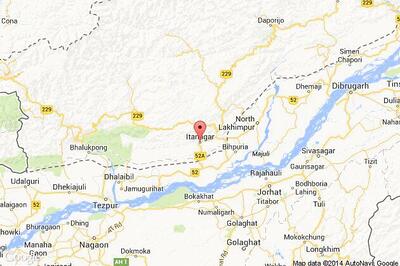
views
The Kerala High Court has rejected a plea by NCP MP Mohammed Faizal for suspension of his conviction in an attempt-to-murder case, stating that if persons with criminal antecedents are permitted to continue as Members of Parliament/Legislatures even after conviction, it would only send wrong signals to the public at large.
With this, the Lok Sabha MP once again faced the consequences of incurring disqualification under the Representation of People Act.
Examining the matter afresh after the Supreme Court’s order of August 22, a single-judge bench of Justice N Nagaresh noted that the petitioner has been involved in three other criminal cases, though those cases have not resulted in conviction so far.
The court also noted the incident of assault that occurred on April 16, 2009, was in connection with general elections and there are eyewitnesses to it, and the victim was to be taken to a hospital on the mainland in a helicopter for treatment where he remained as an in-patient for 14 days.
“Criminalisation of election process is of grave concern in our democratic polity. The tentacles of political crimes and criminalisation of election process have started grappling free and fair elections. Incidents of criminal acts being committed even during meeting of legislative bodies are surfacing. Proliferation of crime in election process could garner momentum to cripple Indian democracy, if men with criminal background are allowed to continue to be part of the democratic system,” the bench said.
The court also pointed out that in view of the law laid down by the Supreme Court on suspension of the order of conviction, the criteria and threshold limit for grant of suspension of sentence and the criteria and threshold limit for grant of suspension of the order of conviction cannot be the same.
The judge, thus, held, “As there are materials prima facie evidencing the criminal acts on the part of the accused, I am of the firm view that this is not a fit case to suspend the order of conviction imposed on the 2nd petitioner. The prayer of the 2nd petitioner for suspension of the order of conviction is therefore rejected.”
The court ordered that the suspension of sentence of all four accused as per the order of January 25, 2023, with conditions would continue for now, pending final disposal of the appeal.
The accused represented by senior advocate Kapil Sibal contended that hardly nine months are left for general elections to Parliament and if he is disqualified now, the damage that would result will not be one which can be undone.
“The question then is whether an accused in a criminal case is entitled to get the order of conviction suspended whenever and wherever the order of conviction would result in damage which cannot be undone,” the bench asked.
The court, however, said, “The stay on conviction must be granted only in rare cases and that too only under special circumstances.”
Referring to several SC judgements, the bench said that the appellate court can suspend an order of conviction in the exercise of the powers under Section 389(1) CrPC in a fit case if it finds that the case is frivolous.
It further pointed out that if the appellate court feels satisfied that an order of conviction needs to be suspended or stayed so that the convicted person does not suffer from a certain disqualification provided for in any other statute, it may suspend the order of conviction in cases where the damage done cannot be undone.
“However, even in such cases, the court has a duty to look into all other aspects of the case,” it said.
The bench also referred to Rahul Gandhi’s case in which the top court had on August 4, 2023, suspended the conviction after finding that no reason was given by the trial judge for imposing the maximum sentence, which has the effect of incurring disqualification under Section 8(3) of the Act.
On January 11, 2023, Faizal and three others were sentenced to 10 years rigorous imprisonment and fined Rs 1 lakh each by a sessions court in Kavaratti in Lakshadweep for attempting to kill Mohammed Salih, son-in-law of the late union minister PM Sayeed, during the 2009 Lok Sabha elections.
On January 25, 2023, the Kerala High Court suspended Faizal’s conviction and sentence.
On SLPs by the administration of the Union Territory of Lakshadweep and the complainant, the SC set aside the HC order and remanded the case back to decide it afresh, saying it has not considered the true position of law with respect to the manner in which application for stay on conviction has to be considered.


















Comments
0 comment